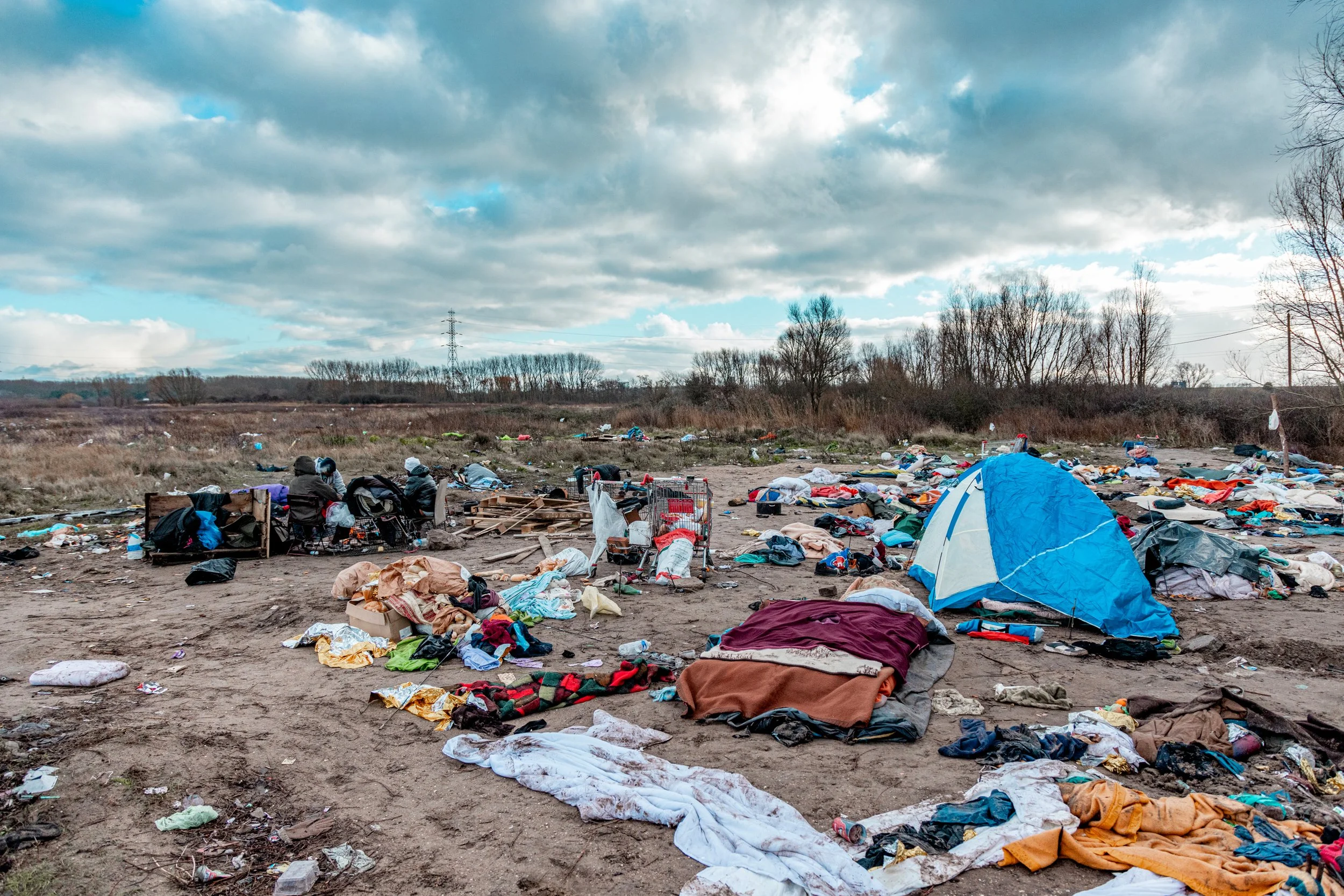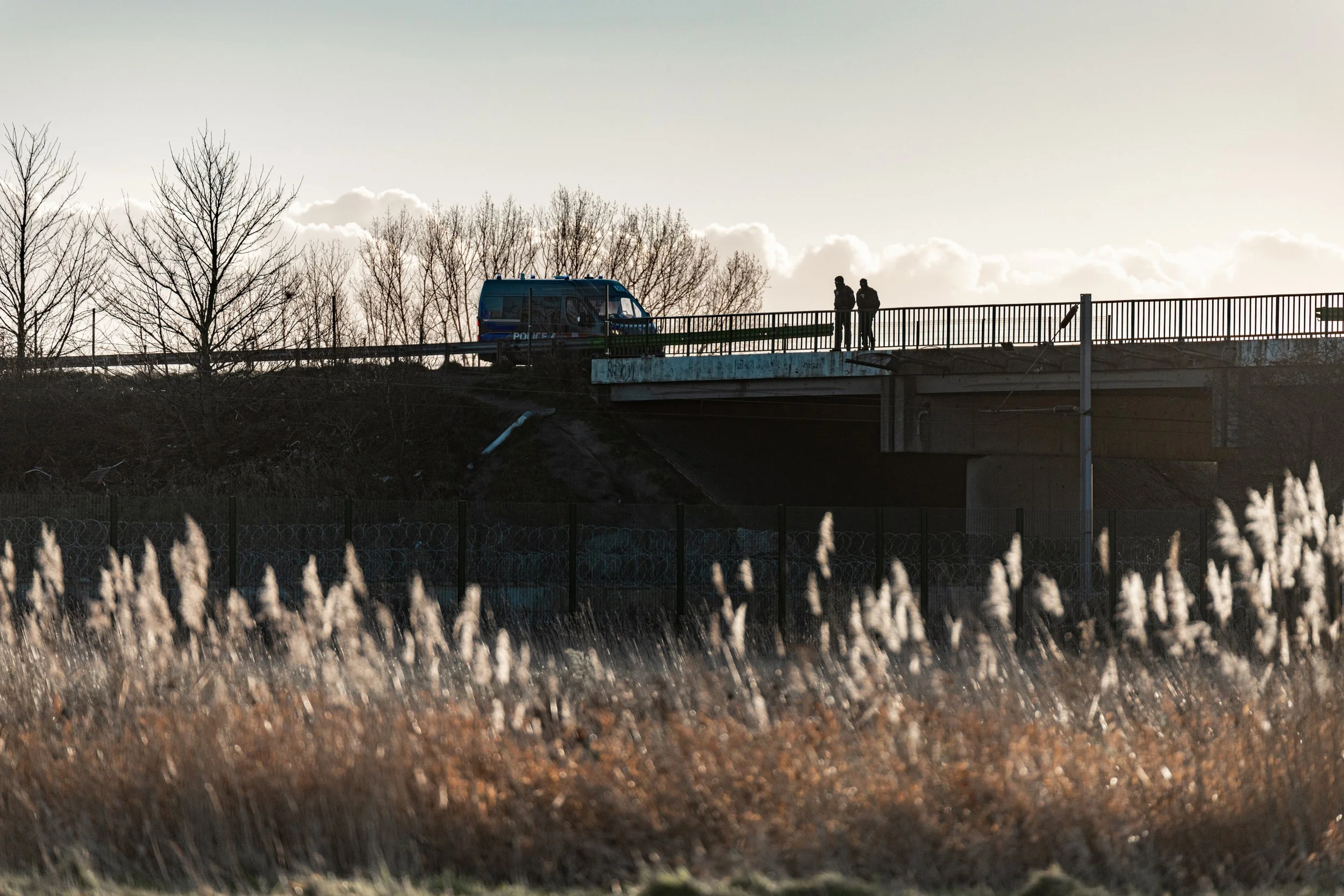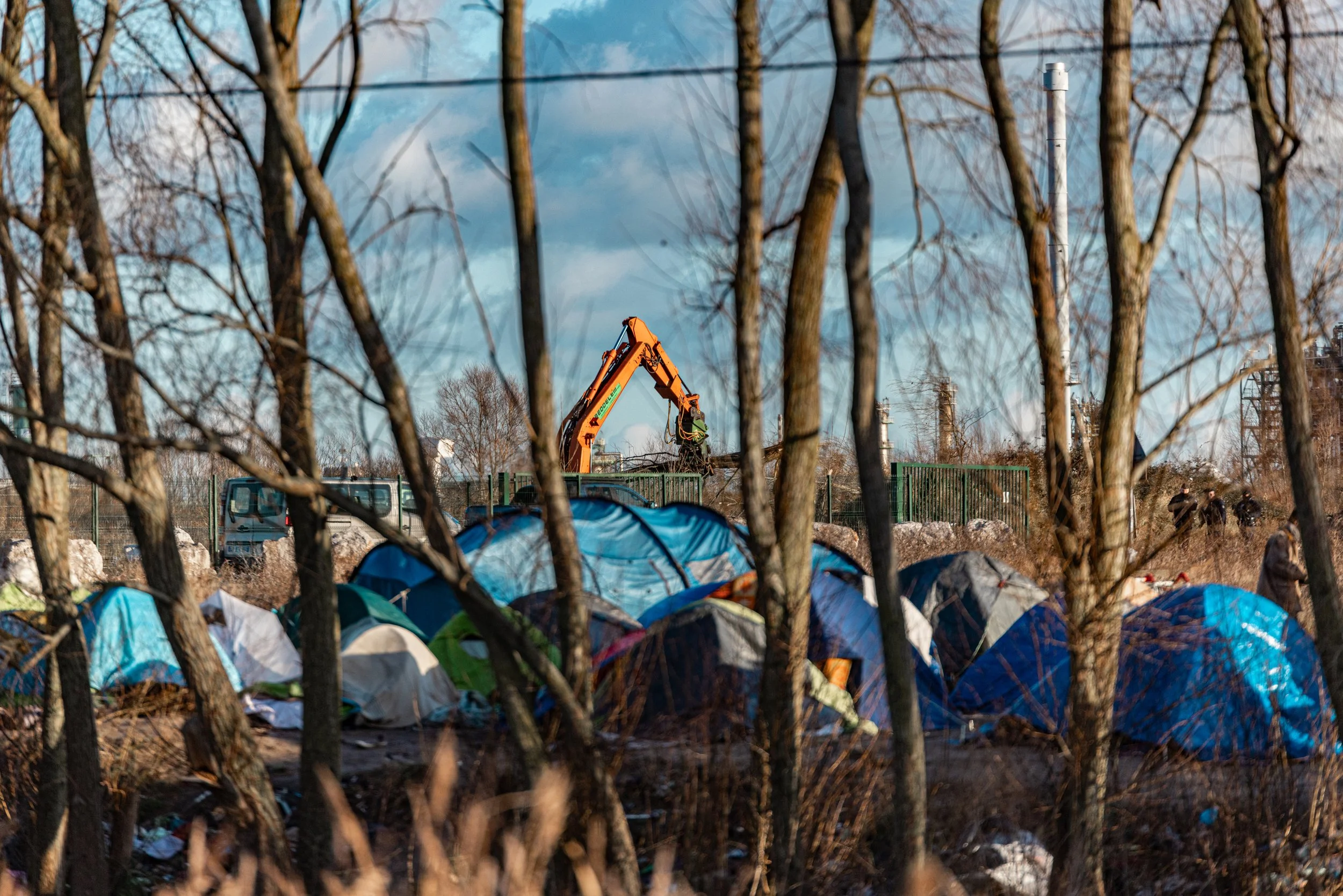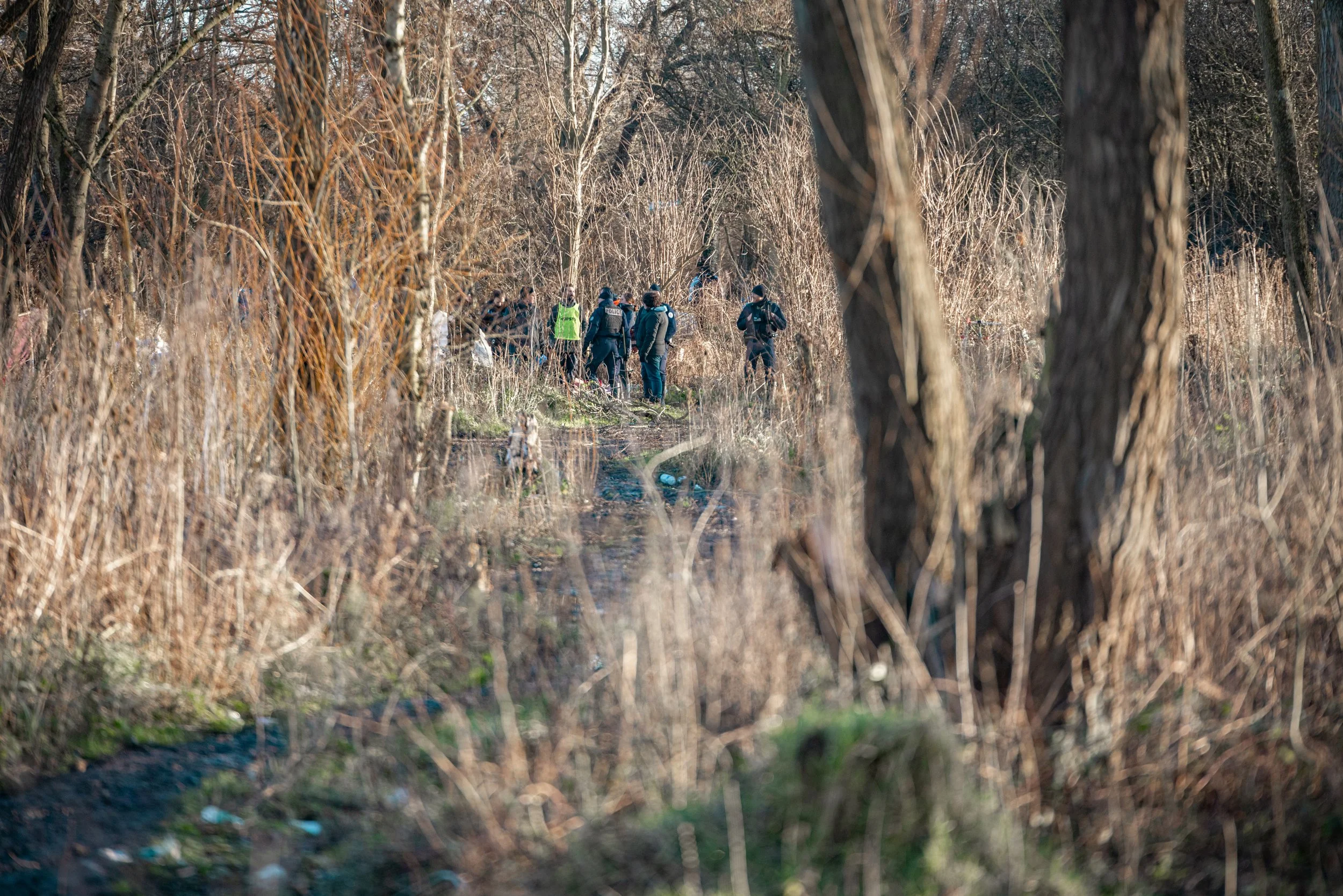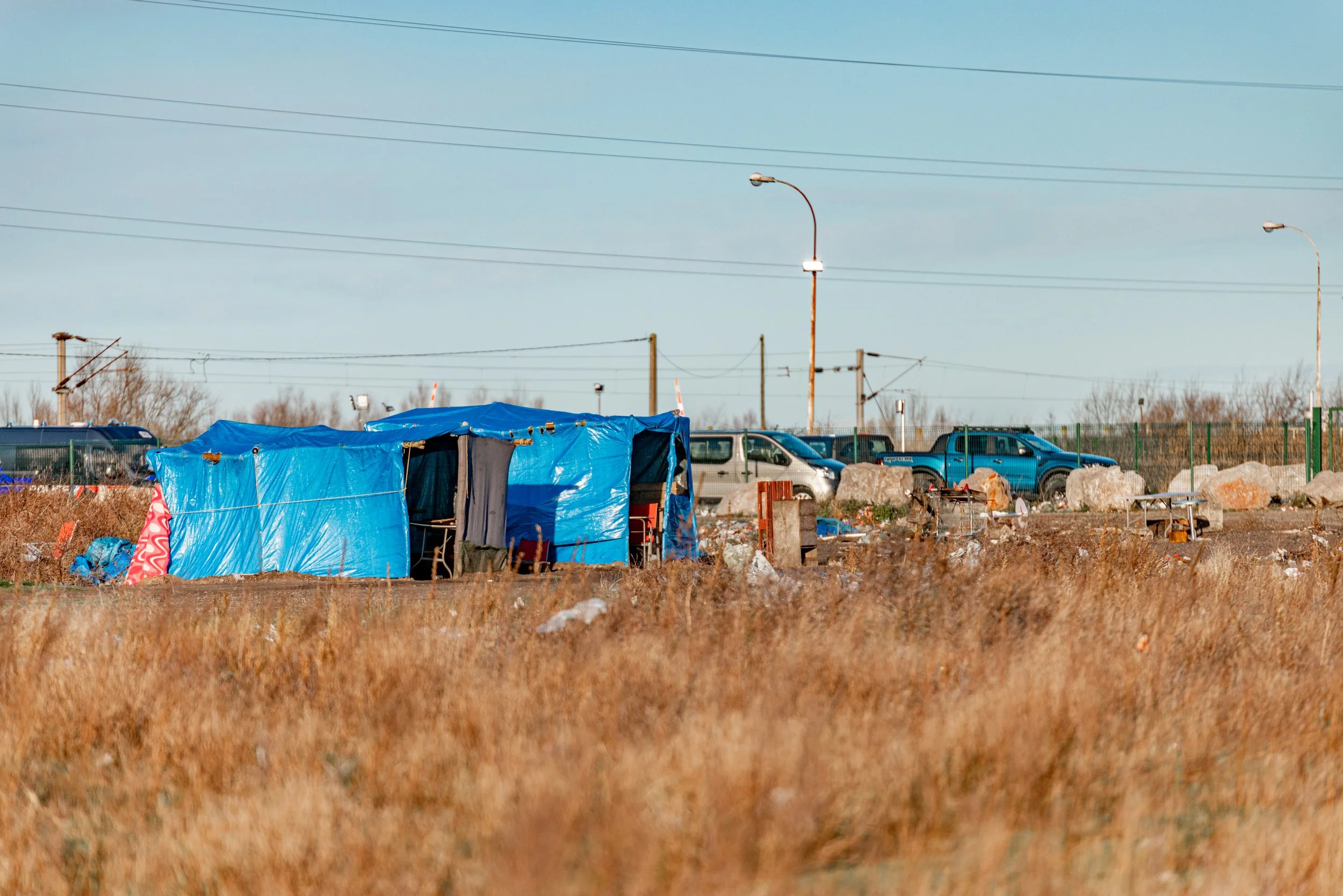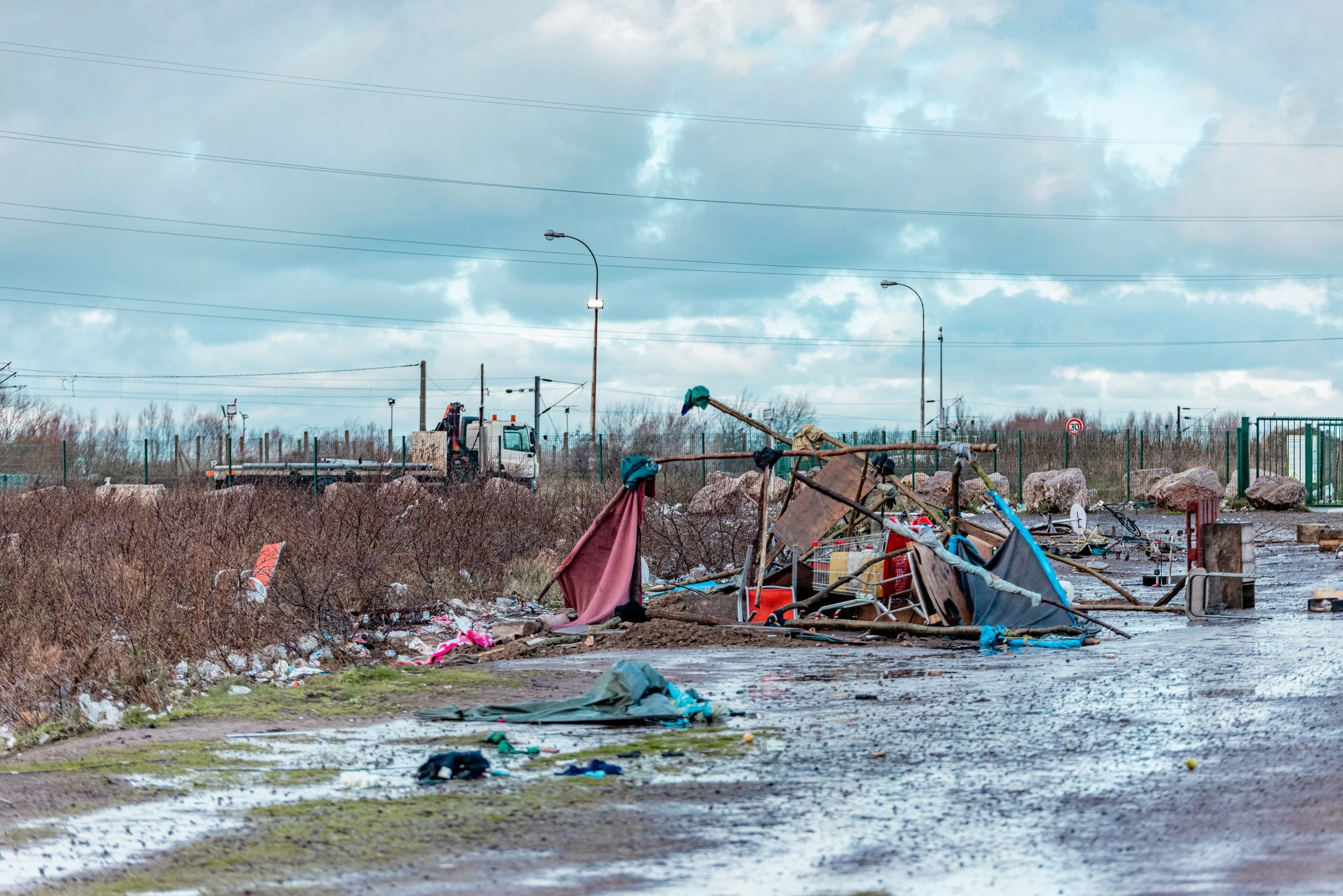
zelfstandige fotojournalistiek voor een rechtvaardige wereld.
Ik geloof dat ik met een camera nog meer kan doen dan het ondersteunen van campagnes en bewegingen. Wereldwijd zijn er misstanden, verhalen die aandacht verdienen en momenten die gezien moeten worden. Ik zet daarom mijn eerste stappen als (foto)journalist. Ben je schrijver, heb je een platform of een verhaal en wil je samenwerken? Ik kom graag met je in contact!
DETERReNCE AND DESTRUCTION
January 7th, 2025 | Loon-Plage, France
Winter is starting to set in Northern France. Right after the first weekend with freezing temperatures, we get this text in the early morning: "Cops on bridge, eviction ongoing." Evictions are not a rare occurrence, but the police taking tents and personal belongings in these harsh weather conditions shows how cruel the deterrence policies are.
Having learned about this unofficial refugee camp near Dunkirk only a year ago myself, I realize not many people are fully aware of what our governments put people through on Europe’s borders. As a photographer, I feel that's something I should try to change.
After getting the text, I collect my camera gear, get on my motorcycle, and head to the camp. When I arrive at "Total," the site that's being evicted, I find the entrance blocked at a railway crossing by two officers with large rifles. I show them my press badge, but no entrance is allowed. That’s fine - I’ll take another route.
Through an opening in the fence by the train tracks, where the barbed wire is put aside, I find my way in. I cross the tracks and climb over large concrete blocks, meant to block the path.
One of the guys from the camp offers me a hand and helps me down.
I walk a few hundred meters against the tide of people leaving the camp. They fear arrests. In the distance, I see heavy machinery cutting down trees. They’re removing natural shelter.
I walk further into the camp. At the back, I see the police and "clean-up crew" dragging away tents. I get to take one photo before the police see me. They come over, and with my press badge still in hand, forbid me from taking any more pictures, threatening to confiscate my gear. Heavily armed officers escort me away, pointing me out to their colleagues with the words “journalist, journalist” in a tone that suggests mockery.
They prefer to do this work unseen.
But I see what I see. This isn’t cleaning up - it’s destruction. They’re not taking the trash, only the tents; people’s cover against freezing temperatures and rain in the middle of winter. They cut down trees and dig large holes to render the ground unusable. The police walk me about a kilometre away from the site.
When I return in the afternoon, the police have left. I see two things. Firstly, more destruction: makeshift shops were torn to pieces.
11:14 AM
2:29 PM
But I also see the people returning, the first tent already erected, and the shelters being rebuilt. I admire the perseverance, and am shocked just how pointless the police operations are.
Destruction in an attempt at deterrence.
